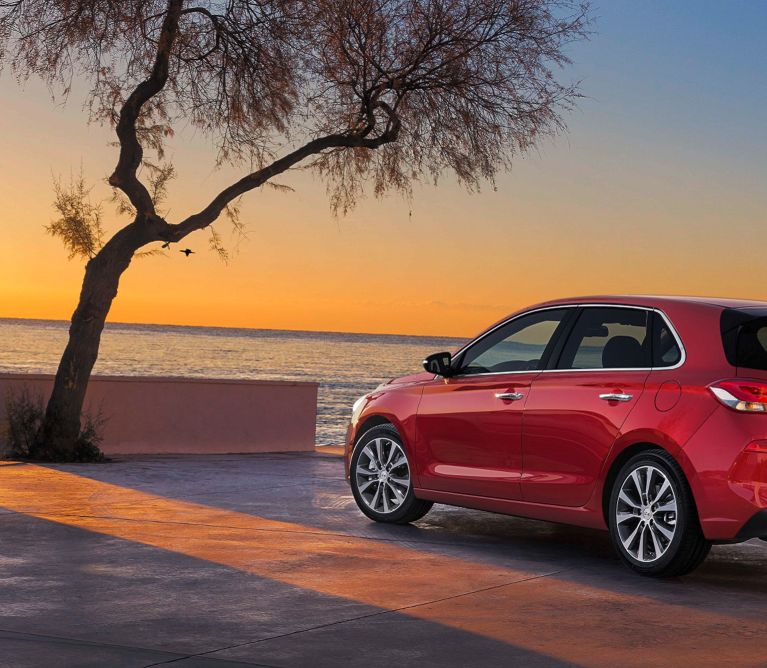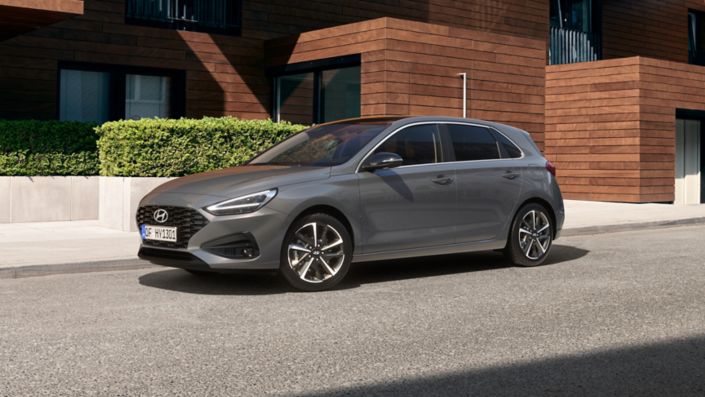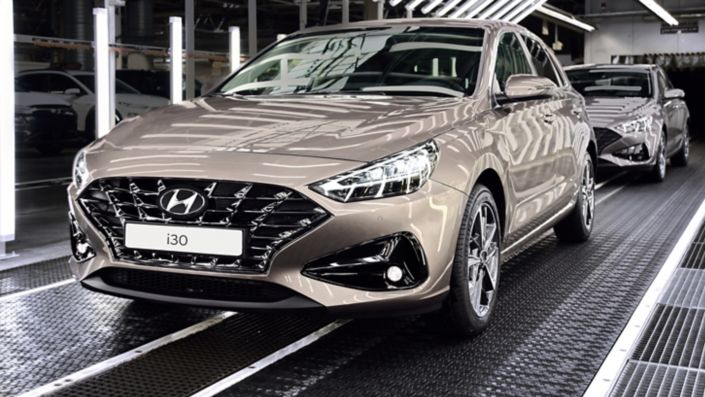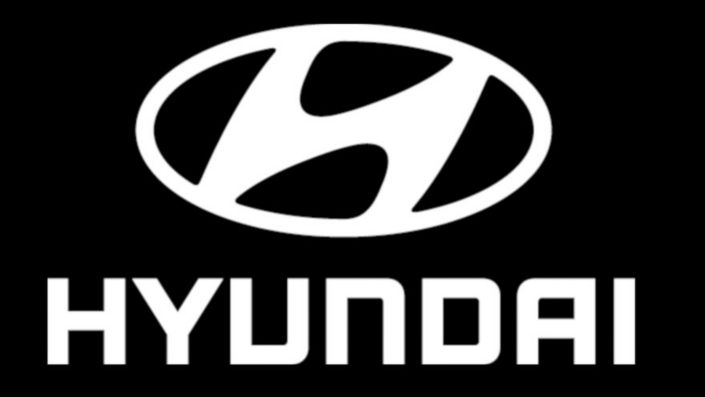The New Generation i30 is being produced at Hyundai Motor's state-of-the-art European manufacturing facility in Nošovice, Czech Republic, alongside models such as the Hyundai Tucson and the Hyundai ix20. Having opened in 2008, Hyundai Motor Manufacturing Czech Company (HMMC) is the most modern automotive plant in Europe. In June 2016, the two millionth car rolled off the production line.
Press material
Designed, developed and manufactured on the continent, the New Generation i30 is Hyundai Motor’s DNA car in Europe.
Built to be a car for everyone
The cars are put together by 3,300 highly-skilled employees and 500 high-tech robots that use advanced technology to transform high-strength Hyundai steel into timeless design on a single production line. 1,500 vehicles are assembled every day, with four different models on a single production line. The factory produces 350,000 cars each year, and exports to 58 countries.
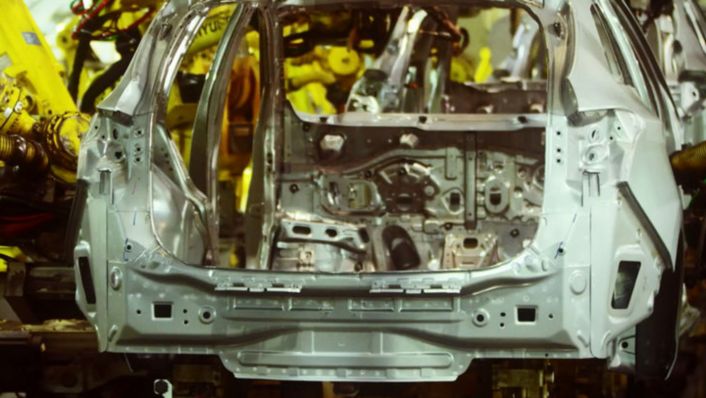
When it comes to applying paintwork to the i30 bodies, 60 robots are used to apply 12 colours. These are then checked by 300 quality experts to ensure high standards at each stage of the process.
Buyers of the New Generation i30 can choose between a 6-speed manual or a 7-speed dual clutch transmission. 453,000 transmissions are produced at HMMC every year. These are mated to small displacement downsized turbocharged engines, such as the new 1.4 T-GDi (140PS) (Fuel consumption combined: 5.5 - 4.8 l/100 km; urban: 6.6 - 5.9 l/100 km; extra-urban: 5.0 - 4.1 l/100 km; CO2 emissions combined: 125 - 109 g/km), to offer drivers high responsiveness and lower consumption.
Buyers of the New Generation i30 can choose between a 6-speed manual or a 7-speed dual clutch transmission. 453,000 transmissions are produced at HMMC every year. These are mated to small displacement downsized turbocharged engines, such as the new 1.4 T-GDi (140PS) (Fuel consumption combined: 5.5 - 4.8 l/100 km; urban: 6.6 - 5.9 l/100 km; extra-urban: 5.0 - 4.1 l/100 km; CO2 emissions combined: 125 - 109 g/km), to offer drivers high responsiveness and lower consumption.
Tested on HMMC’s own test track
To ensure that the highest quality standards are met, each car is rigorously tested on the factory’s own test track before being shipped to showrooms across the continent. This enables Hyundai Motor to provide its industry-leading 5-year unlimited mileage warranty.
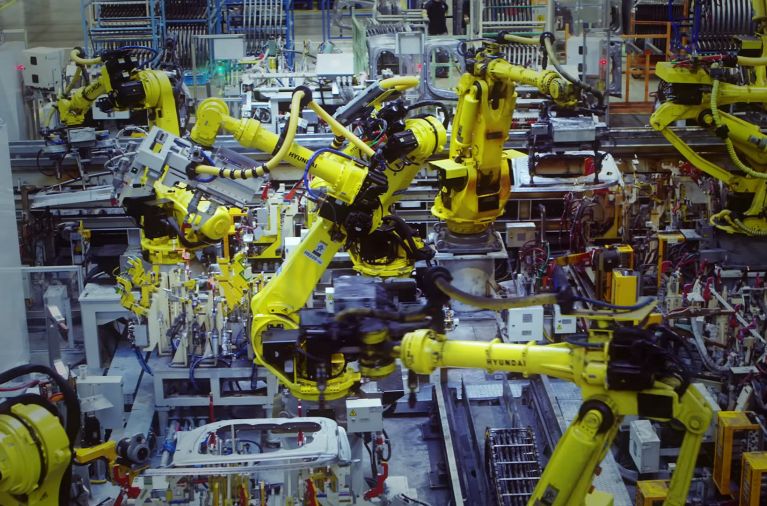
Consumption Data*
Gasoline Engines
1.4 MPI (100 PS): Fuel consumption combined: 5.6 - 5.4 l/100 km; urban: 6.8 - 6.6 l/100 km; extra-urban: 4.9 - 4.8 l/100 km; CO2 emissions combined: 130 - 126 g/km
1.0 T-GDi (120 PS): Fuel consumption combined: 5.0 - 4.5 l/100 km; urban: 5.8 - 5.4 l/100 km; extra-urban: 4.6 - 4.0 l/100 km; CO2 emissions combined: 115 - 103 g/km
1.4 T-GDi (140 PS): Fuel consumption combined: 5.5 - 4.8 l/100 km; urban: 6.6 - 5.9 l/100 km; extra-urban: 5.0 - 4.1 l/100 km; CO2 emissions combined: 125 - 109 g/km
Diesel Engines
1.6 CRDi (95 PS): Fuel consumption combined: 3.8 - 3.6 l/100 km; urban: 4.1 – 4.0 l/100 km; extra-urban: 3.6 - 3.5 l/100 km; CO2 emissions combined: 98 - 95 g/km
1.6 CRDi (110 PS): Fuel consumption combined: 4.1 - 3.4 l/100 km; urban: 4.4 – 3.8 l/100 km; extra-urban: 3.9 - 3.2 l/100 km; CO2 emissions combined: 109 - 89 g/km
1.6 CRDi (136 PS): Fuel consumption combined: 4.1 - 3.8 l/100 km; urban: 4.4 - 4.2 l/100 km; extra-urban: 3.9 - 3.6 l/100 km; CO2 emissions combined: 109 - 99 g/km
*Depending on trim and tire specifications.

